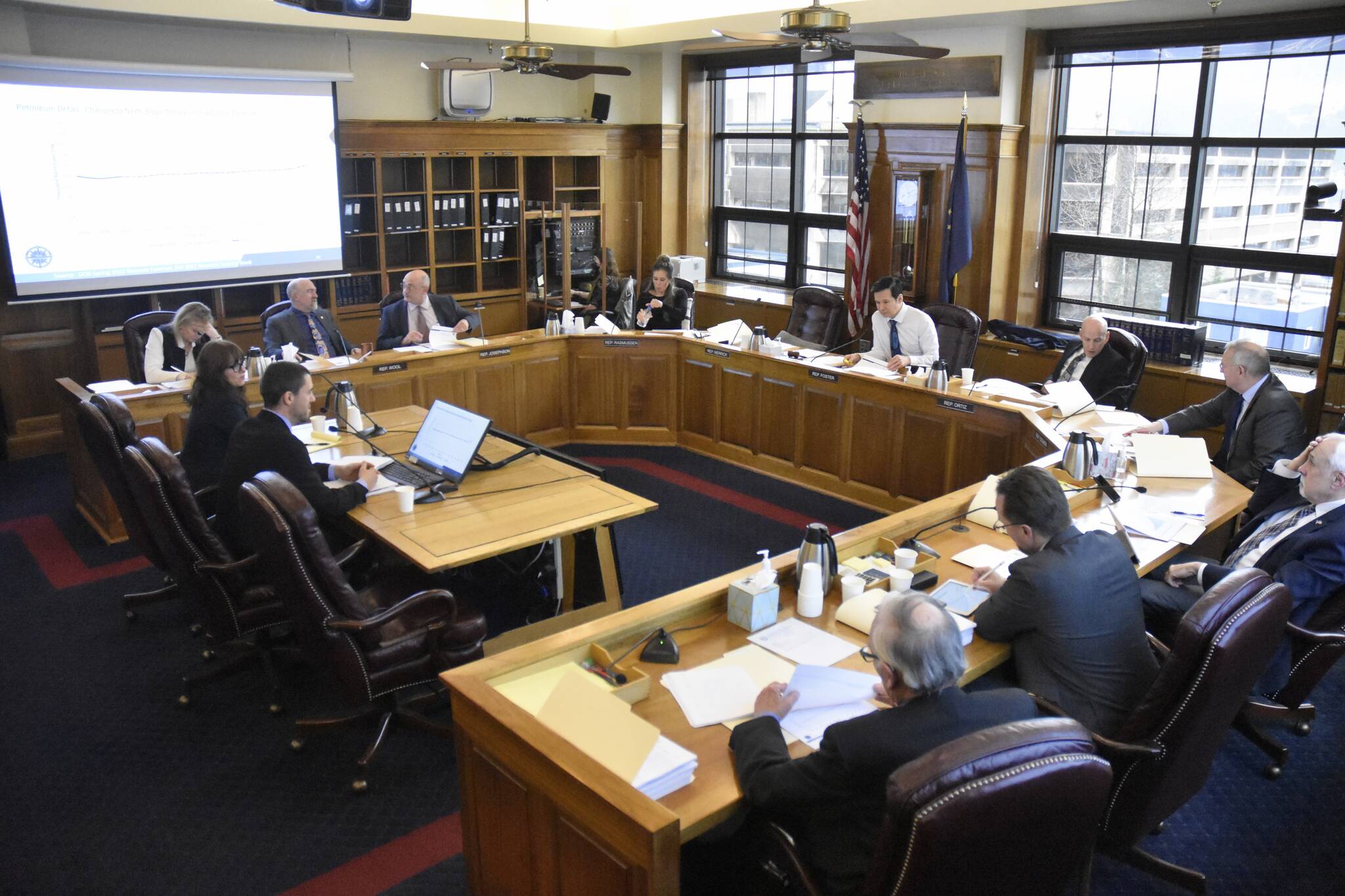Lawmakers had a busy day Wednesday, with both the Alaska Senate and House of Representatives voting to pass multiple bills and the House Finance Committee releasing an updated budget proposal.
In the Senate
Senators passed two bills, the first would prohibit restrictions on firearms during a disaster declaration and the other would prevent businesses from requiring COVID-19 vaccinations for employees.
Several Republican senators rose to address concerns with the vaccination bill. The bill — Senate Bill 156 — came from Sen. Lora Reinbold, R-Eagle River, and prohibits businesses or government agencies from requesting COVID-19 vaccination status or requiring the vaccine as a condition of employment. Reinbold, a frequent critic of COVID-19 mitigation measures, has been banned from Alaska Airlines due to her refusal to comply with COVID-19 mitigation requirements.
Speaking on the floor Wednesday, Reinbold said her bill was to stop the segregation and discrimination currently going on against unvaccinated people who had been denied access to certain facilities or businesses.
Sen. Natasha von Imhof, R-Anchorage, said some businesses such as elder care facilities need the flexibility to require vaccines of their employees.
“Private businesses don’t want interference from government on either side,” von Imhof said. “This is simply a mandate it’s just on the other side of the aisle.”
In a vote of 13-6, the bill picked up some Democratic votes. Sens. Tom Begich, Anchorage and Scott Kawasaki, Fairbanks, voted for the bill. Republicans von Imhof and Sen. Bert Stedman, Sitka, voted against. Juneau Sen. Jesse Kiehl, a Democrat, voted against it.
In the House
For the second time this week floor sessions in the House went into the evening as lawmakers debated a bill to enact limits on individual campaign contributions. On Monday and Wednesday House members first met in the morning, but as debates dragged out, the body recessed until the afternoon or evening to continue the session.
House members were able to pass two bills during Wednesday’s morning session. The first modified requirements for marriage witnesses with the aim of making it easier for tourists to have destination weddings in the state.
[Gov calls for $3,700 PFD after updated revenue forecast]
The House also passed a bill to enact a tax on car-rental apps such as Turo, which allows people to rent out their vehicles. The tax would be similar to those already paid by commercial car rental companies.
But a bill to enact limits on individual campaign contributions took the House into the evening again Wednesday. On Monday House members debated 17 amendments to the bill, many of which sought to add election security provisions to the bill.
The bill would place limits of $2,000 on individual contributions to Alaska’s political campaign. Supports of the bill — mainly Democrats — said the bill protected Alaska’s elections from undue influence and corruption.
But members of the House minority said the bill was an infringement on free speech and unfairly punished individual donors while large independent expenditure groups had no limits under federal law.
“The problem is independent expenditure groups,” said Rep. Kevin McCabe, R-Big Lake. “We have not yet ID’d the problem. (The bill) is not a solution to the actual problem.”
After several hours of floor session Wednesday, the House recessed until 6:30 p.m. to take up the bill again.
House Finance Committee
In between floor sessions, the House Finance Committee reviewed an updated version of the committee’s budget proposal. The committee’s budget included increased funding for school bond debt reimbursement and forward funded the education budget through the next year.
The committee’s proposal would pay a Permanent Fund Dividend of $1,250 but also includes the proposal for a one-time “energy relief payment” of $1,300. Finance Committee Co-Chair Neal Foster, D-Nome, told committee members Wednesday afternoon amendments to the bill were due by Friday.
• Contact reporter Peter Segall at psegall@juneauempire.com. Follow him on Twitter at @SegallJnuEmpire.

